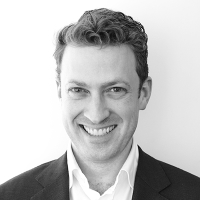Ever since pleading guilty to a series of financial and campaign-related crimes, President Donald Trump’s former lawyer Michael Cohen has done everything but take out a billboard to send the special counsel’s office a message: Pay Attention To Me.
Although the crimes for which he pleaded guilty were not Russia-related, Cohen, through his lawyer Lanny Davis, wants Robert Mueller to know he can still be useful in the investigation into Russian meddling in the 2016 election.
“Mr. Cohen has knowledge on certain subjects that should be of interest to the special counsel and is more than happy to tell the special counsel all that he knows," Cohen’s attorney, Davis, told MSNBC’s Rachel Maddow on Tuesday night.
So, it’s clear Cohen is open for business. Less clear is what he might have to sell or, for that matter, whether Mueller will feel the need to use him.
“I would try to flip him and use him as a cooperator,” former U.S. Attorney Barbara McQuade told The Daily Beast. “He clearly wants to cooperate. He might have to plead to additional crimes if he is responsible for committing them. The SDNY plea agreement does not preclude additional charges by Mueller.”
As McQuade sees it, Cohen’s cooperation could further implicate Trump or his associates in Russia’s attempts to influence the 2016 election. More specifically, there are at least three subject areas that Cohen could help shed light on as Mueller does his digging. They include the following:
- The infamous 2016 Trump Tower meeting between Russians and the Trump campaign to get “dirt” on Hillary Clinton
- Efforts to build a Trump Tower Moscow, which stretched into the 2016 presidential campaign
- A 2017 Ukrainian “peace plan” delivered to the White House that would have lifted U.S. sanctions on Russia
As Trump’s long-serving aide, Cohen would have been in position to at least know some of what Trump was doing, namely in regards to the Trump Organization where Cohen was an executive. But Mueller would first have to determine if Cohen himself was a credible witness. Already, Cohen’s story about Trump and Russia has changed.
On Wednesday, Cohen’s lawyer Lanny Davis insisted that Cohen had been “present during a discussion with junior and dad” when CNN’s Wolf Blitzer asked if the Trumps had advanced knowledge of the Russian meeting—the clear implication being that the president knew before the meeting happened.
But then Davis took back his statement later that night when he was asked if Cohen has such information. “No, he does not,” he told Anderson Cooper.
Further complicating Cohen’s credibility is his testimony before Congress last year where he claimed to not have known about the meeting with Russians until the rest of America learned. (Lying to Congress is a felony, provided prosecutors can prove someone willfully didn’t tell the truth.)
Davis told Blitzer that Cohen’s “testimony to the House and Senate intelligence committees was accurate.”
If Mueller talks to Cohen, he will want the discrepancies explained, according to McQuade.
“I don’t think they would conclude he is useless just yet. Davis’s secondhand accounts are not dispositive. I think they would want to talk to Cohen themselves. But prior inconsistent statements are problematic. They would have to explain why he told different stories on different occasions,” she said.
Cohen’s utility to Mueller is apparent in other areas as well, though—once more—he would have to grapple with past statements professing Trump’s innocence on the matters. For instance, Cohen could prove useful in corroborating or dismissing claims from a former Trump business partner that plans for a Trump Tower in Moscow stretched into the presidential campaign. And he would likely know. Felix Sater, who helped negotiate foreign deals for the Trump Organization, testified that Cohen was the “intermediary” for efforts to build a property in Russia’s capital.
In October 2015, Trump signed a letter of intent for the project. Cohen last year in a statement said “the decision to pursue the proposal initially, and later to abandon it, was unrelated to the Donald J. Trump for President campaign.”
But Sater told BuzzFeed News that the two were in talks leading up to the Republican National Convention. Sater asked Cohen when he and Trump would go to Moscow, potentially to meet Vladimir Putin. Cohen replied via text: “MY trip before Cleveland. Trump once he becomes the nominee after the convention.”
This wasn’t the only Sater-Cohen project that would be of interest to Mueller.
The week after Trump was inaugurated, the two met with a member of Ukraine’s parliament, Andrii Artemenko. At their meeting inside a luxury Park Avenue hotel, The New York Times reported last year, Artemenko proposed a plan that would lead to the lifting of U.S. sanctions on Russia after its forces pulled out of Ukraine and Crimea was “leased” to Russia.
Cohen told the Times he took the proposal in a sealed envelope to the White House. He said he met Trump in the Oval Office that February and afterwards left the envelope in Flynn’s office. (Flynn was fired that month after he was caught lying to the FBI about discussing sanctions with Russia’s ambassador days earlier.)
The White House does not maintain visitor logs to check if Cohen was there that day. But the episode is under scrutiny in the Russia investigation, according to Artemenko, who testified before Mueller’s grand jury in June. Artemenko told ABC News that Mueller’s team, both in interviews and during his grand jury appearance, asked about his relationship and meetings Cohen.
“My personal opinion is that Michael Cohen is the target of this investigation,” he said. “It's my personal opinion because they asked me about it.”






